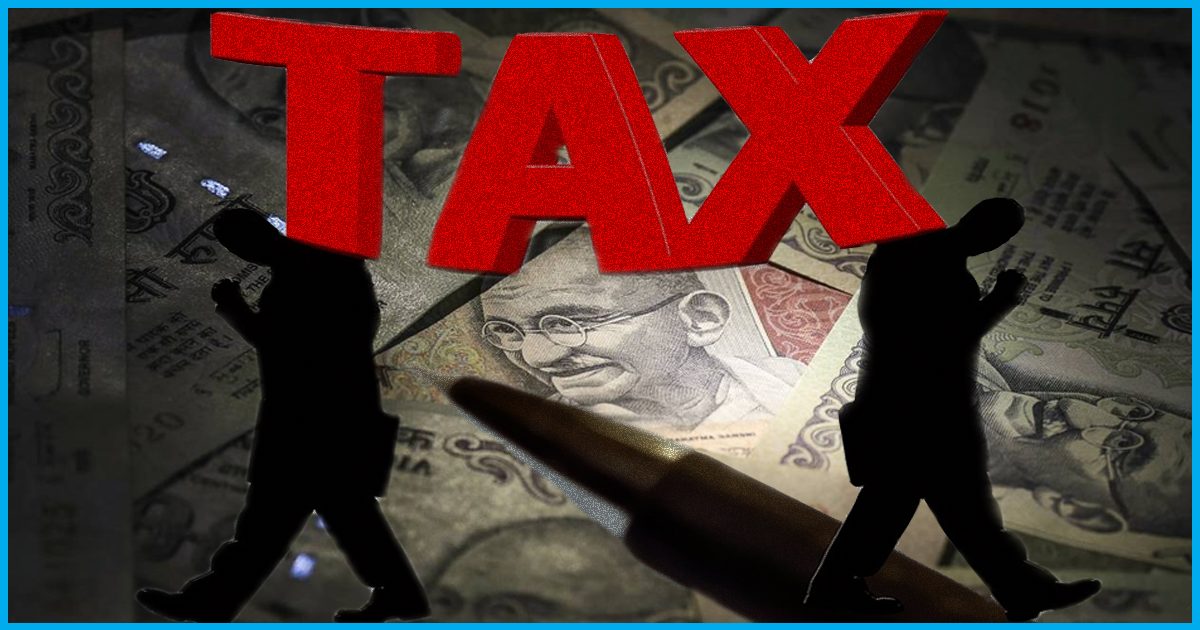
In 2015-16 Companies Making Greater Profits Paid Lower Tax Rates Than Those That Made Less Profit
14 Jun 2017 6:39 AM GMT
Did you know – In 2015-16 companies in India which made greater profits paid lower tax rates than companies which made less profit?
In the Union website, the document “Revenue impact of Tax Incentive under the Central Tax System: Financial Years 2015-16 and 2016-17”, contains some fascinating but little-covered details of the budget. The Indiaspend article which is now picked up by mainstream media focuses on money lost in providing ‘incentives’ (subsidies) to corporates. As PM Modi had said at an event earlier last year, “Why is it that subsidies going to the well-off are portrayed in a positive manner?” P Sainath, mentioned in an article earlier that India has allowed corporate income tax foregone of over Rs 6 lakh crore from 2005-06 to 2014-15. The trend continues this year as well.
India has foregone revenue of over Rs 76,857 crore in corporate subsidies in 2015-16 and worth Rs 83,492 crore in 2016-17. Further, if you look at the data, there is a big and under-reported issue regarding the proportional benefits of these subsidies to the bigger corporates. The government also provided customs duty exemption of Rs 69,259 crore and Rs 79,183 crore for excise duty in 2015-16.
Compare this with the agriculture and farmers welfare budget itself which is Rs 35,984 crore and the NREGA budget being at Rs 48,000 crore and we find ourselves asking if the taxpayer money is being spent for the right subsidies/incentives. Finance Minister Arun Jaitley said in his 2017-18 budget speech that the plan to phase out exemptions will kick in from April 1, 2017.
The bigger the profit, the lower the tax rate paid
The stunning data shows, that the companies making bigger profits are paying a lower rate of effective tax. Effective tax rate is the tax rate paid by companies on profits, calculated as tax paid divided by profits before tax. For instance, a company making a profit between Rs 0-1 crore paid was 30.26%, however for that which made profit greater than Rs 500 crore paid corporate tax of just 25.9% (Table 1). This means that for the smaller organisation (making a smaller profit), there is no level-playing field.
Table 1

46% of Indian companies made no profit according to data in 2015-16
Further, the data shows that in 2014-15, 43% of Indian companies made losses, 3% companies made no profit and 47.7% of companies made profits up to Rs 1 crore in 2015-16.
About 6% of India’s companies recorded profits in excess of Rs 1 crore, according to the tax data. The proportion of loss-making companies as is shown by Table 2 is increasing on average over last 5 years.
Table 2

Profit-making companies that paid no corporate tax and in some cases received money from the government
15,080 companies made profits but paid no corporate tax or in some cases paid negative tax (i.e. they got money from the government rather than paying to the government).
Contributions by corporates to political parties shows difference compared to reporting by political parties to Election Commission for 2015-16
The deductions granted on account of contribution by corporates to political parties has declined from Rs 112 crore in 2014-15 to Rs 14 crore in 2015-16, according to tax data.
This data is different to the data provided by parties to the Election Commission.
Donations received by political parties in excess of Rs 20,000 was Rs 576 crore (including just contributions in excess of Rs 20,000 by national parties) in 2014-15 and Rs 168.2 crore (including contributions by both national and regional parties) in 2015-16, according to data from Association for Democratic Reforms. This does not include donations lesser than Rs 20,000 by corporates as political parties do not have to declare it. One potential explanation could be that corporates are underreporting on the data.
As responsible citizens, we need to seek greater transparency on the reasons for such corporate incentives/subsidies and the difference in political party contribution data as made by parties themselves and corporates. We hope the government provides greater clarity on the same and works hard to ensure that subsidies (or exemptions as are called for the well-off) are focused only on the needy sections of the society.
About the Author: Rohit Parakh works in a social enterprise in Bengaluru. He wrote the original Indiaspend article and can be reached on [email protected]. He also wrote an article on this in The Logical Indian last year which can be read here.
 All section
All section













